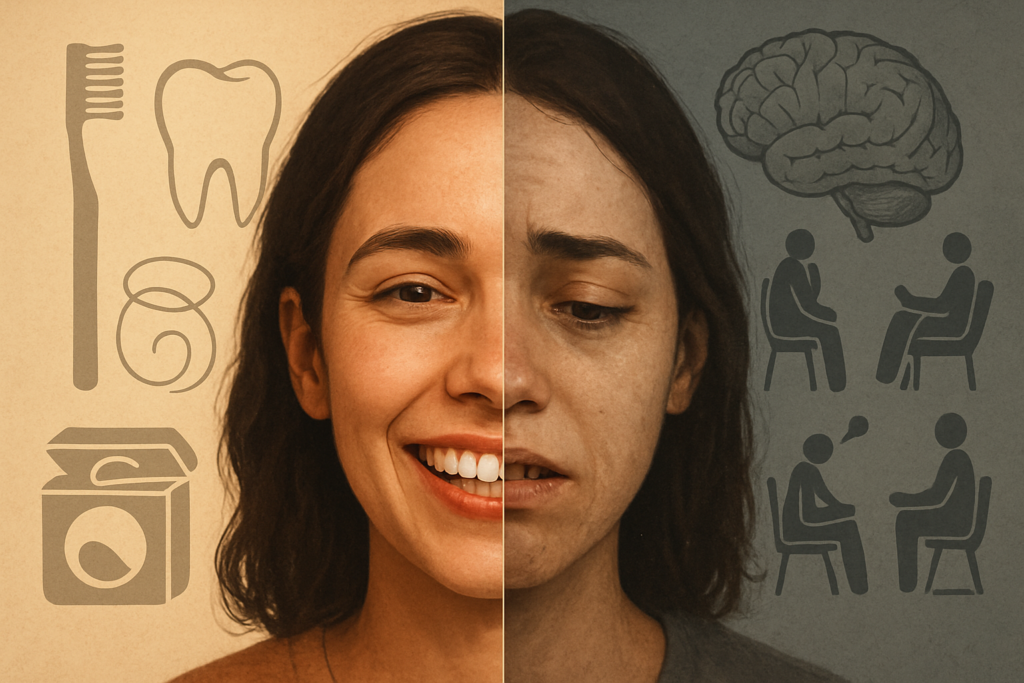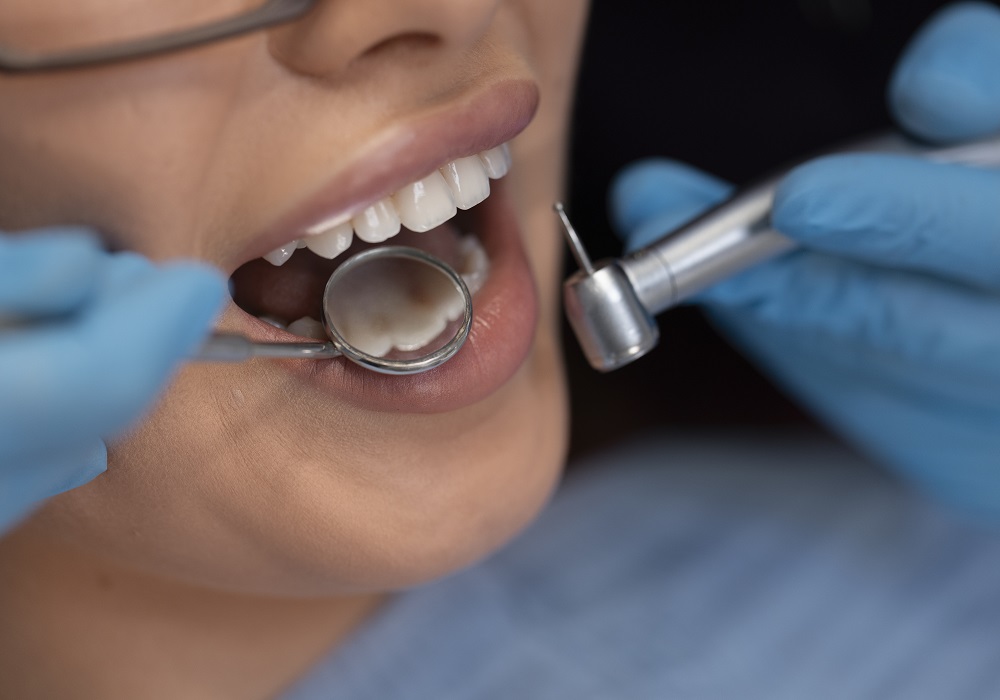People with mental illness often struggle with gum disease, decay, and missing teeth due to medication side effects, lack of access to care, and daily challenges. Understanding the connection can help us create better support systems and improve overall health outcomes.
A Story Behind the Smile
Sonia used to smile brightly. But after years of battling depression and anxiety, that smile began to fade—not just emotionally, but physically. Despite brushing when she could, she started experiencing gum pain and tooth decay. Her story isn't unique. Millions of people with mental illness suffer silently, not just in the mind, but in their mouths.
Gum disease, decay, missing teeth: why people with mental illness have poorer oral health isn't just a medical issue—it's a public health challenge we can't ignore.
Why Is Oral Health Worse for People with Mental Illness?
The connection between mental health and dental issues is complex and often overlooked.
- Mental illnesses like depression, bipolar disorder, and schizophrenia can interfere with daily routines like brushing and flossing.
- Medications can cause dry mouth, which leads to a higher risk of tooth decay and gum disease.
- Anxiety can make dental visits overwhelming or even impossible.
What Medications Cause Oral Health Issues?
Certain psychiatric medications reduce saliva production, leading to a condition known as xerostomia (dry mouth).
- Antidepressants (like SSRIs)
- Antipsychotics (such as olanzapine, risperidone)
- Mood stabilizers
Saliva plays a crucial role in protecting teeth. Without it, bacteria thrive, causing gum disease, decay, and even tooth loss.
How Do Daily Routines Impact Dental Health?
Mental illness often disrupts daily life.
- Lack of energy or motivation may lead to skipped brushing or flossing.
- Apathy or fatigue can make appointments feel impossible.
- Poor nutrition and smoking, common in people with mental illness, add to the risk.
Is Dental Anxiety a Barrier?
Yes. For many, dental care triggers fear.
- Anxiety disorders can heighten sensitivity to pain, sounds, or even smells in a dental office.
- Missed appointments turn into worsening oral health over time.
What Are the Socioeconomic Factors at Play?
People living with mental illness are more likely to face:
- Unemployment or underemployment
- Lack of dental insurance
- Stigma that discourages seeking help
These barriers reduce access to regular, preventive dental care.
Why Does Oral Health Matter for Mental Health?
It goes both ways.
- Poor oral health affects self-esteem, leading to social withdrawal.
- Infections in the mouth can affect overall body health, worsening depression or anxiety.
- Pain from untreated cavities or gum disease can lead to irritability, sleep loss, and more emotional distress.
What Are the Signs of Gum Disease and Decay?
Early warning signs include:
- Bleeding gums
- Bad breath that won't go away
- Tooth sensitivity or pain
- Loose teeth or receding gums
Recognizing these symptoms early can prevent severe outcomes.
Can Dental Care Be Adapted for People with Mental Illness?
Absolutely. Many dental providers now offer:
- Trauma-informed care
- Shorter, more frequent visits
- Flexible communication options
With compassionate treatment, patients feel more empowered to maintain oral health.
What Can Caregivers and Loved Ones Do?
Support is key:
- Encourage routine hygiene without judgment
- Assist with appointment scheduling
- Advocate for integrated care between mental health and dental professionals
Are There Programs That Help?
Some nonprofits and clinics offer:
- Low-cost or sliding scale dental services
- Mobile dental units
- Community partnerships with mental health providers
Check with local health departments or national organizations for resources.
– Frequently Asked Questions
1. Why do people with mental illness often have poor dental health?
They face barriers like medication side effects, lack of motivation, financial constraints, and dental anxiety.
2. What medications contribute to gum disease and decay?
Antidepressants and antipsychotics often reduce saliva, causing dry mouth, which promotes gum disease and tooth decay.
3. Can poor oral health worsen mental illness?
Yes. Pain, embarrassment, and inflammation can negatively impact emotional well-being.
4. How can dental care be made more accessible?
By integrating it with mental health care, offering flexible scheduling, and providing community-based options.
5. What are the long-term risks of untreated gum disease?
Tooth loss, chronic pain, infections, and worsening mental health.


 Dental Checkup Services
Dental Checkup Services
 Our range of products
Our range of products
 Oral Care Blogs
Oral Care Blogs
Recent Comments